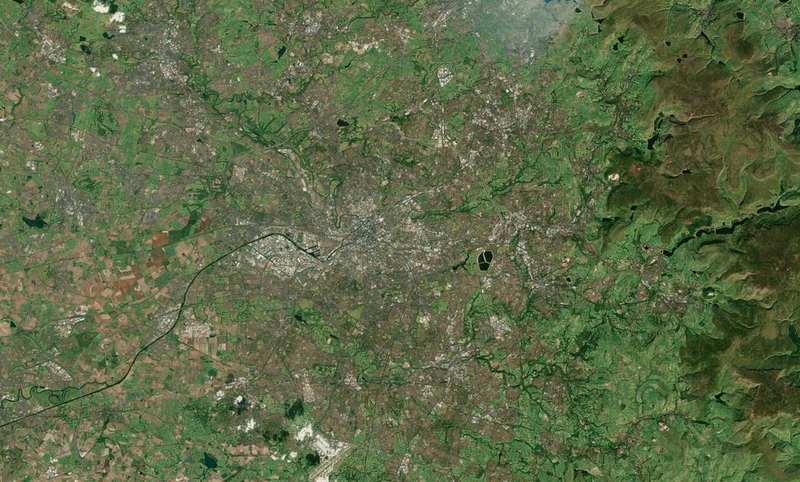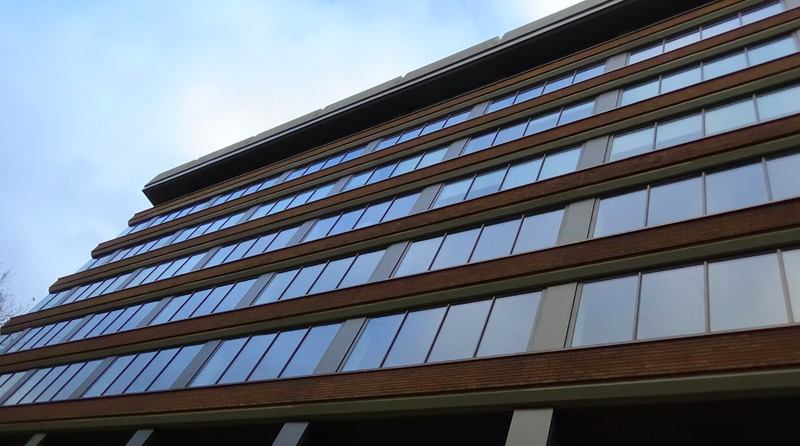Jonathan Schofield attends the new GMSF launch in a building with an unfortunate yet apt name
THE collective noun for mayors is ‘magnificence’. Thus, in an office block on Portland Street, we had a magnificence of Andy Burnham, our mayor, that indefatigable politician who seems to be everywhere at once - especially on TV. Actually, that's cruel, as Burnham has shown incredible energy in forging alliances and learning about all of Greater Manchester and its populations. That he has such a high media presence is to be welcomed.
We also had ten Greater Manchester council leaders in the room. In the quieter moments of the launch of the Greater Manchester Spatial Framework (GMSF) I tried to think of a collective noun for these elected bosses. Given that all councils in Greater Manchester are Labour maybe a ‘consensus’ of council leaders. Or perhaps a ‘cabal’. Or even a ‘coven’.
Don’t consult this all to death please. Delivery, as well, over these next two decades would be most welcome.
It was a popular launch. The broadcast, print and digital media of near and far (although mainly near) were packed into the eighth floor of a building, unfortunately named Westminster House. This raised a few smiles as one of the key and oft-repeated phrases in the launch was: “We’ll need central government’s help to achieve what we want.’
Still, the meaty, and much delayed document, covering Greater Manchester Combined Authority’s (GMCA) plans across the region for housing, town development, environment, skills, infrastructure and possibly newt-management did pack a punch.
The delay stems from the outcry created by an earlier plan which meant many of a proposed 227,000 new homes would be built on greenbelt. Instead, 60% of open space will have its protection strengthened and the focus for building will be brownfield sites, in other words recycling previously built on property, often ex-industrial. The figure for house-building has been reduced to 201,000 homes as that, apparently, is what we really need, not the previous higher figure. 50,000 of the new homes will be ‘affordable’ including 30,000 social housing units.
The change of emphasis from greenbelt to brownfield means Manchester city centre will provide 25% of the total. These 50,000 new homes will be mainly apartments. Salford, in the areas contiguous with the city centre and over to MediaCity, will also gain thousands of new homes, again mainly apartments.
There has been much criticism of councils being dragged along by big commercial developers over the last few years, especially over city centre apartment building. Burnham emphasises that this time it will be different. The GMSF is not a ‘developer-led plan’ but one led by the elected authorities through consultation - in other words joined up thinking not hap-hazard.

Stockport is set to be a guinea-pig for the region and have its own Mayoral Development Corporation, to drive on the progress already being made around the market. A big part of GMSF is to accelerate the improvement of the Greater Manchester town centres. As Sir Richard Leese, Manchester council leader, says at one point, “Quality of place is the biggest economic driver”, although he was referring to more than just town centres.
A wise change of focus is envisaged. “We’ll concentrate on residential rather than retail in our town centres,” says Burnham. “They are developed urban spaces with local amenities as well as existing transport hubs for our buses, trams, trains and roads.” To this end older people will be encouraged back into the town centres through that uplift in accessible and affordable accommodation. This makes sense since older folk are less likely to be logged on to Amazon or obsessed with Mario Kart.
There’s the rub. We will still need London and the government on board
The new residential, commercial and industrial growth will be bolstered by transport. There are ‘more than 65 projects that will be completed within the next five years, including: Metrolink’s Trafford Park Line; the purchase of 27 new trams; an upgrade of Salford Central railway station; a £160m new walking and cycling infrastructure across all ten districts; expanding the city-region’s electric vehicle charging network; and new interchanges in Tameside and Stockport.’
Other aims include implementation of an ‘opportunity pass’ for 16-18 year olds to allow free public transport travel and discounts and concessions to leisure, cultural and sporting activities. There will be fines for non-compliant polluting HGVs, vans, buses, taxis but not private vehicles, and ‘companies and businesses will be supported in ensuring their vehicles are cleaner as we do not want the economy to suffer’.

As for employment, the speakers at the launch want ‘more businesses with better jobs and more people with better skills in a region with the most diverse economy of any UK city region’. If the GMSF cracks that particular nut then all the rest should follow.
Throughout the launch the need for consultation was stressed, then overstressed and finally stressed out (especially consultation with young people). Yes, dear Greater Manchester Combined Authority, we get that you want ‘to do politics differently’, but don’t consult this all to death please. Delivery, as well, over these next two decades would be most welcome.
His Magnificence Andy Burnham said at one point: “This framework cuts through the paralysis of Brexit.” And it is welcome to see Greater Manchester setting out this integrated vision, expressing a desire to be a global model of a clean, advanced city region.
Yet, in one of the conclusions there’s this passage: ‘We need to acknowledge that the current state of local government finances are precarious. To implement some of these plans we will need to have a different, stronger partnership with Government, and more co-design and control over areas such as skills and transport, and a place based approach to housing, health and welfare, if we are to drive forward the vision set out in the Greater Manchester Strategy.’
There’s the rub. We will still need London and the government on board. Perhaps holding the launch in Westminster House was not a mistake, just a recognition of how far we have to go in devolving Greater Manchester.















